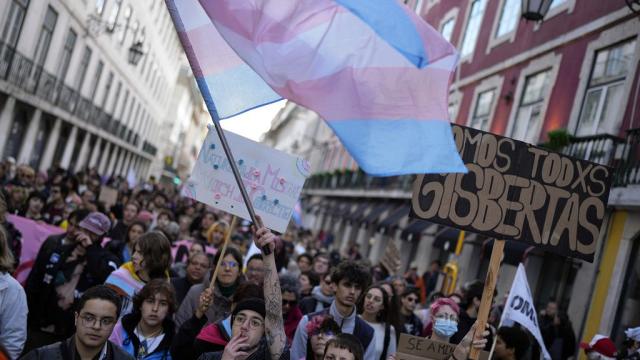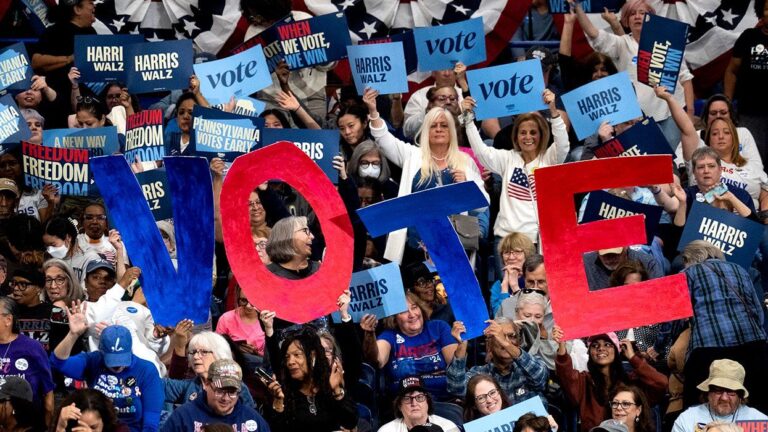Lowe’s Ditches DEI Policies Amid Growing Woke Backlash
Lowe’s Latest Move: Dropping DEI Policies
The corporate world has always been a stage for evolving dialogues, especially when it comes to social responsibility. Recently, Lowe’s, a popular home improvement retailer, made headlines for scrapping its DEI (Diversity, Equity, and Inclusion) policies in response to a growing backlash against what some are labeling “woke culture.” This shift has sparked a whirlwind of discussions, drawing attention from not just business circles but also the general public. So, what’s the story behind this significant decision? Let’s dive in.
Understanding DEI Policies
Before we delve deeper, it’s important to clarify what DEI policies are all about. These initiatives are designed to foster diverse workplace environments, aiming to ensure equitable treatment for all employees while promoting an inclusive culture. In theory, it’s an admirable goal, promoting the idea that everyone, regardless of their background, should have a seat at the table.
Why Do Companies Adopt DEI Policies?
Many companies embrace DEI policies for several reasons:
-
Corporate Social Responsibility (CSR): Businesses want to be seen as good corporate citizens. This often translates into supporting social movements and contributing positively to society.
-
Talent Acquisition: A diverse workplace attracts diverse talent. Companies find that fostering an inclusive culture helps them recruit individuals from varying backgrounds.
-
Innovation and Creativity: Different perspectives lead to better problem-solving and innovative ideas. A team that reflects a wide range of experiences typically outperforms a homogenous one.
- Brand Image: In today’s digital age, consumers are increasingly inclined to support brands that align with their values.
Lowe’s Decision: The Context
Lowe’s decision to ditch its DEI policies didn’t occur in a vacuum. As public sentiment shifts, some people have started viewing DEI initiatives as overly aggressive or even divisive. There’s a growing narrative that “wokeness” has run amok, leading to calls for organizations to reassess these initiatives.
The Backlash
While some supporters hail DEI programs as necessary for social progress, critics argue they can sometimes feel like tokenism or even reverse discrimination. This backlash has been particularly amplified on social media platforms, where voices grow loud and opinions spread like wildfire. Many argue that companies place too much emphasis on diversity at the expense of meritocracy and organizational cohesion.
Lowe’s, feeling the pressure from this cultural shift, decided to reconsider its stance on DEI initiatives, leading to much speculation about what this means for the company and the broader corporate landscape.
A Broader Trend: The Diminishing Role of DEI in Corporations
Lowe’s isn’t the first company to hit the brakes on DEI efforts. A chorus of corporations, once fervently committed to these ideals, is reassessing their approaches. Why? Well, it seems there’s a trend taking shape where businesses are trying to strike a balance between promoting diversity and responding to customer and employee sentiments that call for less focus on DEI directives.
The Ripple Effect
This transformation at Lowe’s can send ripples across the corporate world. As other businesses observe Lowe’s bold move, they might be inclined to follow suit, either as an act of defiance against the backlash or in pursuit of greater profitability. This potential domino effect raises crucial questions:
- What does a withdrawal from DEI policies mean for the future of workplace diversity?
- Are companies prioritizing profits over positive societal change?
- What impact will these decisions have on employees who value inclusivity?
Balancing Act: Profit vs. Principle
There’s an intricate dance between profit and principle, and Lowe’s is trying to find its rhythm. Advocates for DEI argue that a commitment to diversity can enhance a company’s bottom line. After all, a diverse workforce can cater to a broader customer base, leading to increased sales opportunities.
The Argument for Retaining DEI Policies
Critics of Lowe’s move point to several key areas where DEI policies are beneficial:
-
Employee Morale: A commitment to diversity fosters a sense of belonging, which can enhance employee retention and morale.
-
Reputation Management: Companies investing in DEI can manage public perceptions more effectively, presenting themselves as forward-thinking.
-
Market Responsiveness: Diverse teams can be more responsive to the needs of different customer demographics, adapting products and services accordingly.
In the end, the argument hinges on whether companies believe that promoting diversity is essential not just for ethics but also for success.
The Future of Workplace Diversity
So, where does this leave us? As Lowe’s takes a step back from DEI policies, it opens a larger discussion about what the future holds for workplace diversity.
Potential Outcomes
There are several possibilities:
-
Return to Traditional Practices: Companies may revert to more traditional practices that emphasize merit over diversity.
-
Redefined DEI Initiatives: Some businesses might choose to redefine their DEI policies, focusing on genuine inclusivity without the aggressive push some critics dislike.
-
Increased Activism: The backlash against “woke” culture may prompt increased grassroots movements advocating for diversity in a more focused, community-driven manner.
Consumer Sentiment: The Role of the Buyer
The response of consumers can also play a pivotal role in how companies approach DEI in the future. If consumers favor businesses that prioritize diversity and inclusion, that may compel companies, including Lowe’s, to rethink their decisions. The loyalty of consumers can heavily dictate business practices and policies.
Empowering the Everyday Consumer
As consumers, it’s our choice where we spend our money and which brands we support. Engaging with businesses that align with our values encourages a more inclusive corporate landscape. A thoughtful consumer can wield a significant amount of power.
Conclusion
Lowe’s recent decision to ditch its DEI policies amidst a growing backlash against corporate wokeness has ignited conversations about diversity and inclusion in the workplace. This shift reflects on a larger societal trend, where companies are grappling with the right balance between profitability and principled commitments to diversity. While the impacts of this decision remain to be seen, what is clear is that the discourse surrounding DEI is ever-evolving. As consumers and employees, we have a unique opportunity to voice our opinions and encourage positive change in the corporate world. Will Lowe’s decision be a one-off, or will it herald a new corporate ethos? Only time will tell.
FAQs
1. What does DEI stand for?
DEI stands for Diversity, Equity, and Inclusion, policies aimed at creating a diverse and equitable workplace.
2. Why did Lowe’s decide to drop its DEI policies?
Lowe’s made this decision in response to growing backlash against “woke culture,” reflecting a broader trend among corporations reassessing their DEI initiatives.
3. How might this impact Lowe’s employees?
Lowe’s employees might experience changes in workplace culture, with a potential shift away from initiatives that promote diversity and inclusion.
4. What can consumers do in response to corporate decisions about DEI policies?
Consumers can choose to support brands that align with their values regarding inclusivity and diversity, influencing corporate practices through purchasing power.
5. Are other companies also scrapping their DEI initiatives?
Yes, Lowe’s is not alone; several corporations are reconsidering their DEI efforts in light of public sentiment and criticism regarding “woke” culture.






